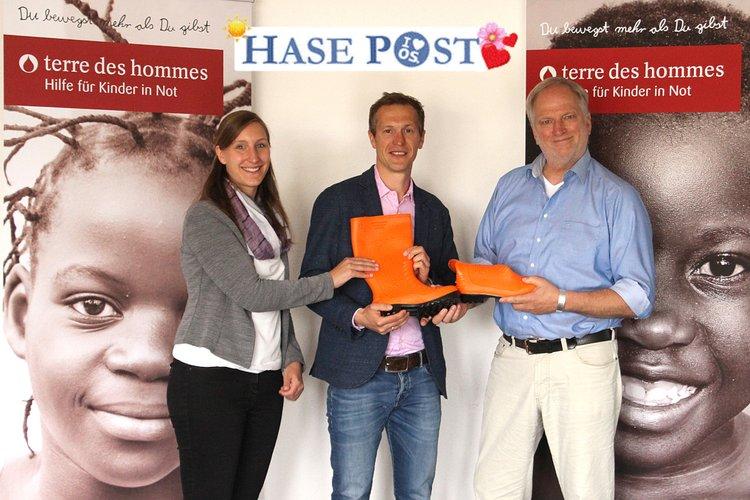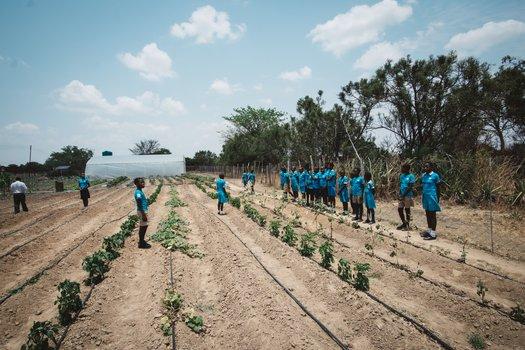Ensuring long-term nutrition for 1,400 children through sustainable, location-specific farming practices
How far would you really go? If we can get together donations of €100.00 in total, bioconstruct will organise an internal blood donation drive and put an additional €60.00 in the donation fund for ‘Wie weit würdest du gehen?!’ (How Far Would You Go?!) for each donor. We guarantee that at least 40 staff and their family members will donate blood. As a result, each one of them will be part of two good deeds. Most of all, we’ll encourage colleagues of ours who haven’t worked up the nerve to donate blood before. We’ll also be providing catering, which will include generous amounts of high-iron juices.
Background
Both Zimbabwe and Zambia have experienced drought in recent years, leading to failed harvests on a massive scale and particularly negative impacts on the nutrition and livelihoods of rural populations. In Zambia, 47.8% of the population is undernourished; in Zimbabwe, 33.4% is. The persistent drought has also greatly impacted people’s access to clean drinking water, which has had grave consequences for children’s development in both countries. The communities of Lower Gweru (Zimbabwe) and Kazungula (Zambia) are some of the regions most strongly affected by this. In addition, there is also a lack of knowledge about newly adapted farming methods and sustainable practices, and this has a negative impact on food security. There are hardly any jobs available for young people in particular, which results in high youth unemployment and migration to big cities and foreign countries. To improve this situation, terre des hommes has worked on a three-year project with two partner organisations, Midlands Aids Service Organisation (MASO) and Environment Africa Trust Zambia (EA), since November 2017.
Cheque delivered in April

bioconstruct, from Melle, Germany, is supporting the work that terre des hommes is doing over the next two years with a €13,000 donation. bioconstruct Managing Director Henrik Borgmeyer (centre), Angela Böddeker (terre des hommes) and Stephan Stolze (Head of Donations at terre des hommes) hand over a pair of orange rubber safety boots and the donation cheque for the project in Zambia and Zimbabwe in a symbolic ceremony.
First progress report
The aid organisation terre des hommes, together with its partners in Zambia and Zimbabwe, has initiated a project to ensure improved access to food and drinking water through sustainable, location-specific farming practices and through renewable energies. We knew we wanted to help the project as soon as we heard about it. ‘Agriculture and new energies are precisely what we’re about. We’re delighted to support this two-year project with a total donation of €13,000,’ said our Managing Director, Henrik Borgmeyer. We received the first progress report and images from Africa in December 2019 and were pleased to see that the project has got off to a great start. We’re also quite pleased that our rubber boots have made it all the way to southern Africa.
